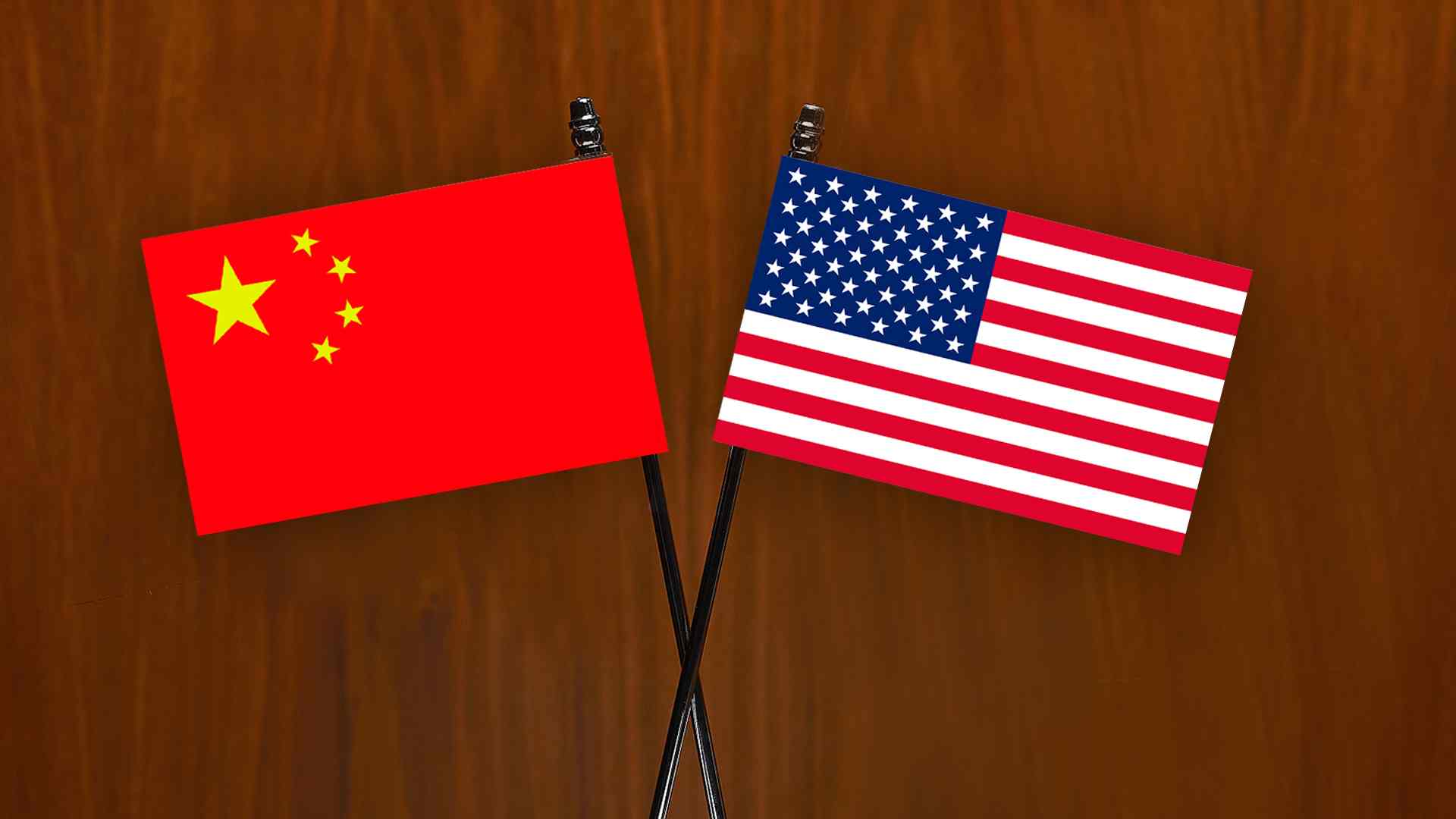Editor's Note: With 2018 drawing to a close, it is time to review the many ups and downs in the international community. Among others, Sino-U.S. bilateral relations have been thrown into spotlight, with the tension of the trade war splitting the two countries. Chris Hawke, a graduate of the Columbia graduate school of journalism, and a journalist reporting for over two decades from Beijing, New York, the United Nations, Tokyo, Bangkok, Islamabad and Kabul for AP, UPI, and CBS, offers his insights to CGTN.
2018 was a very bad year for China-U.S. relations. On the trade front, U.S. President Donald Trump started a tariff war whose damage and repercussions won't easily be undone. Before this move, China and the U.S. had trade friction, but this seemed like part of a complex and mutually beneficial relationship. Going forward, China has made a realization shared by Europe, Mexico and Canada – the U.S. can no longer be relied on.
The sanctions imposed by Trump will probably have the opposite effect of their stated goal – rather than strengthening U.S. dominance, the sanctions are spurring China to quickly develop its own microchips and other technology and diversify its economy so it does not depend on the West.
Different political systems have their own strong and weak points, which become evident as the wheel of history turns. In 2018, the weaknesses of the U.S. system has been highlighted.
The current U.S. president was elected on the basis of a series of divisive promises that transparently had no chance of becoming reality, such as getting Mexico to pay for a wall along its border with the U.S.
These promises all appealed to voters' base emotions, such as a fear of immigrants, rather than any reasonable rational analysis of a situation or how to improve it.
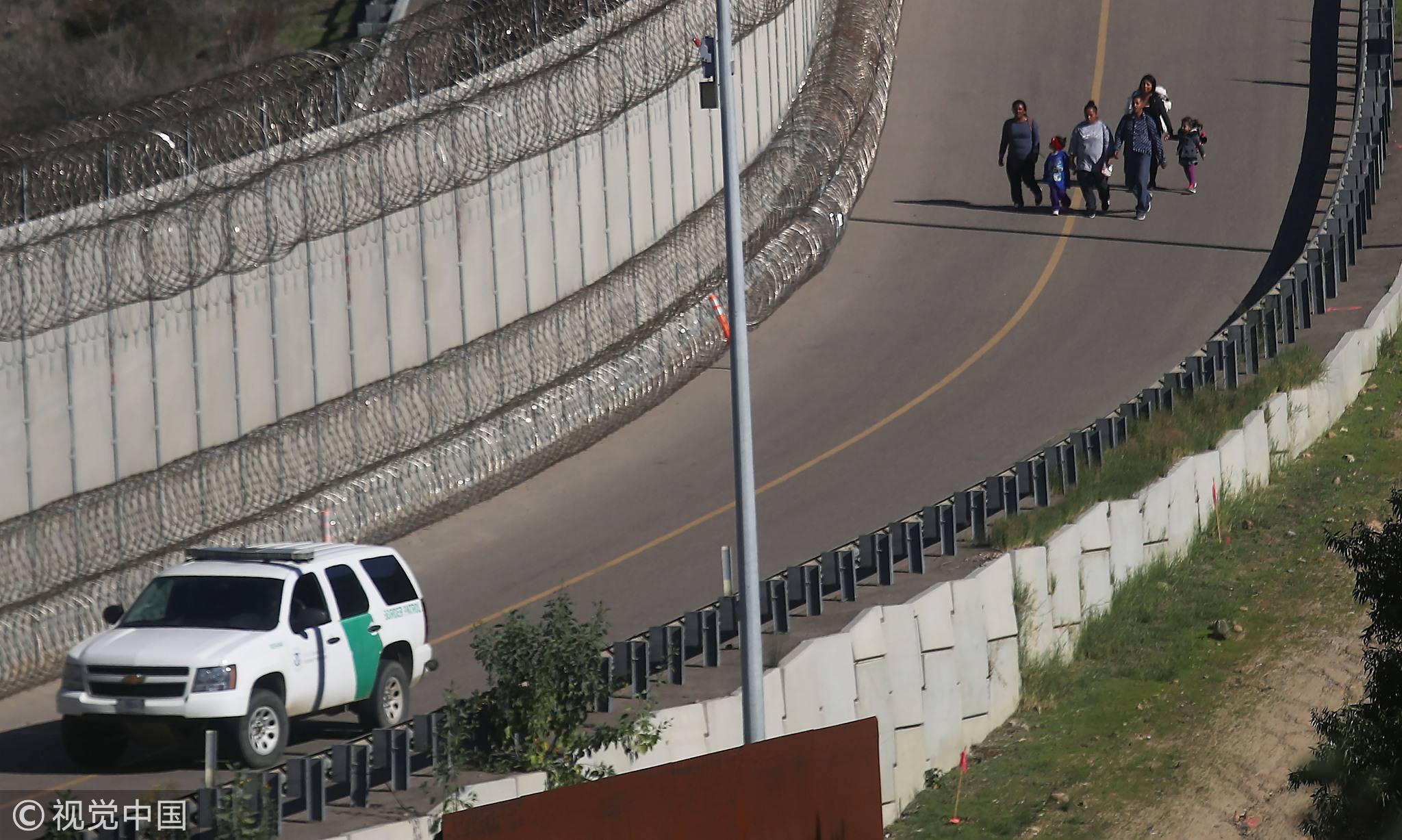
Migrants walk while being taken into custody by the U.S. Border Patrol after crossing the U.S.-Mexico border fence and turning themselves in in Tijuana, Mexico, December 16, 2018. /VCG Photo
Migrants walk while being taken into custody by the U.S. Border Patrol after crossing the U.S.-Mexico border fence and turning themselves in in Tijuana, Mexico, December 16, 2018. /VCG Photo
The president's actual achievements since becoming elected have mainly consisted of undoing the work of the previous president, in areas such as environmental regulations and health care.
Trump cultivated his persona and popularity as the host of "The Apprentice," and is running the U.S. as if it is a reality TV show. This includes taking his foreign policy cues and choosing political advisors from Fox News, and also indulging in the kind of feuds and drama that make reality TV shows (and professional wrestling) interesting.
Earlier this year, Trump decided to make China the target of his tough guy posturing.
China should not feel singled out by this. Trump has targeted the closest allies of the U.S. with sanctions and menacing rhetoric. He is nominally using the sanctions “to get a better deal” for America, making nebulous demands that can't realistically be met in order to make outsourcing to China untenable and bring manufacturing jobs back to his country.
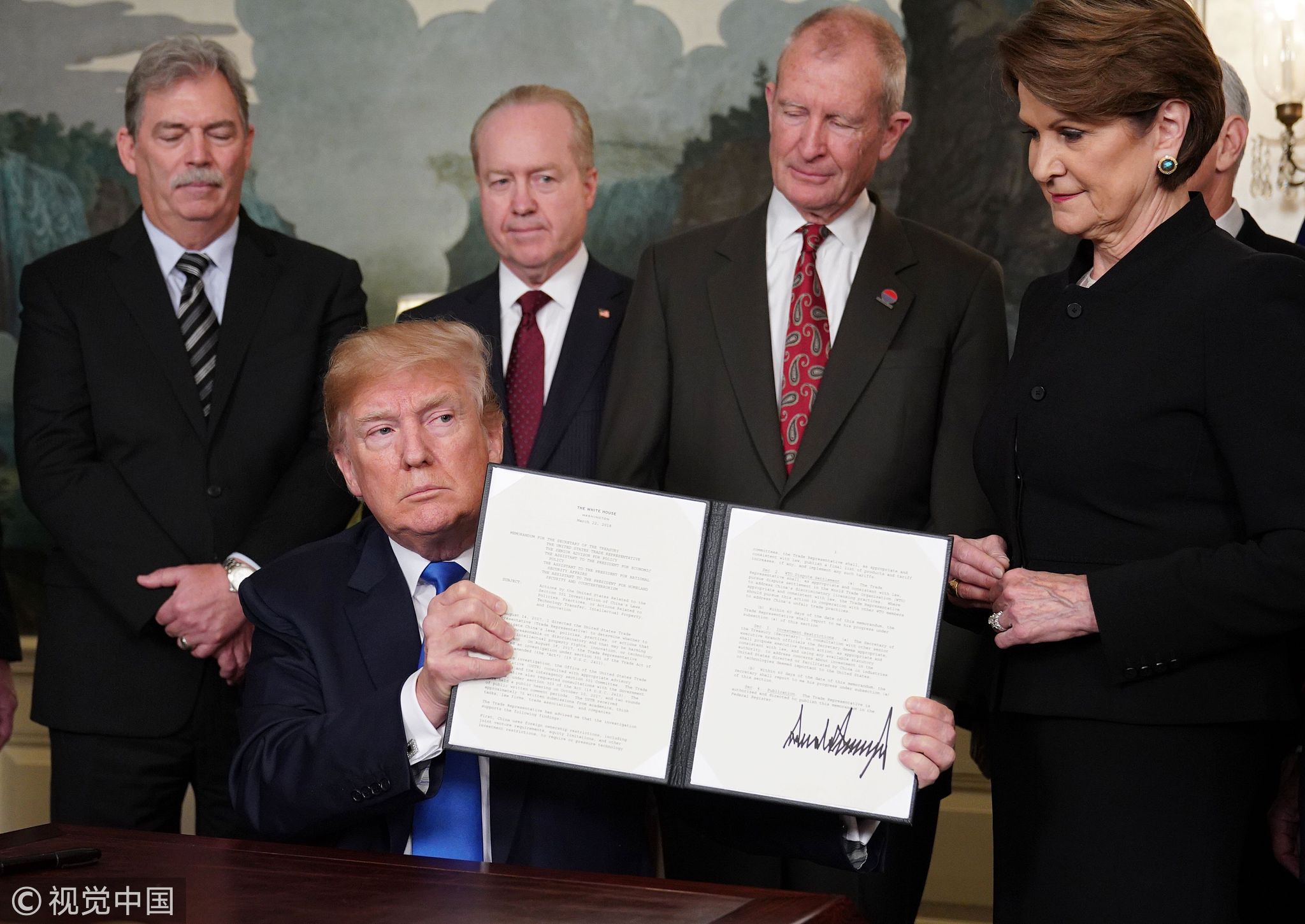
U.S. President Donald Trump signs trade sanctions against China in the Diplomatic Reception Room of the White House in Washington, DC, on March 22, 2018. /VCG Photo
U.S. President Donald Trump signs trade sanctions against China in the Diplomatic Reception Room of the White House in Washington, DC, on March 22, 2018. /VCG Photo
Trump doesn't seriously expect a deal. For him, the reality show president, it doesn't really matter if his actions are likely to result in more jobs in the U.S. It just needs to seem like he is being tough and doing something on behalf of the people who voted for him.
It is easy to understand why China is confused about exactly what the U.S. wants and how that would be measured and attained. At times, it seems like Trump wants China to change its form of government, a demand as likely to be met as Mexico building a wall along its northern border.
The wheel of history in 2018 is highlighting some of the strengths of China's government. Due to the primacy of the Communist Party of China (CPC), the government can make and execute plans lasting decades.
As a divided U.S. lurches from a Democrat to Republican administration, with the new one undoing the work of the previous one, China is marking the 40th anniversary of its reform and opening-up policy, an extended effort that has transformed it from an economic basket case to a powerhouse.
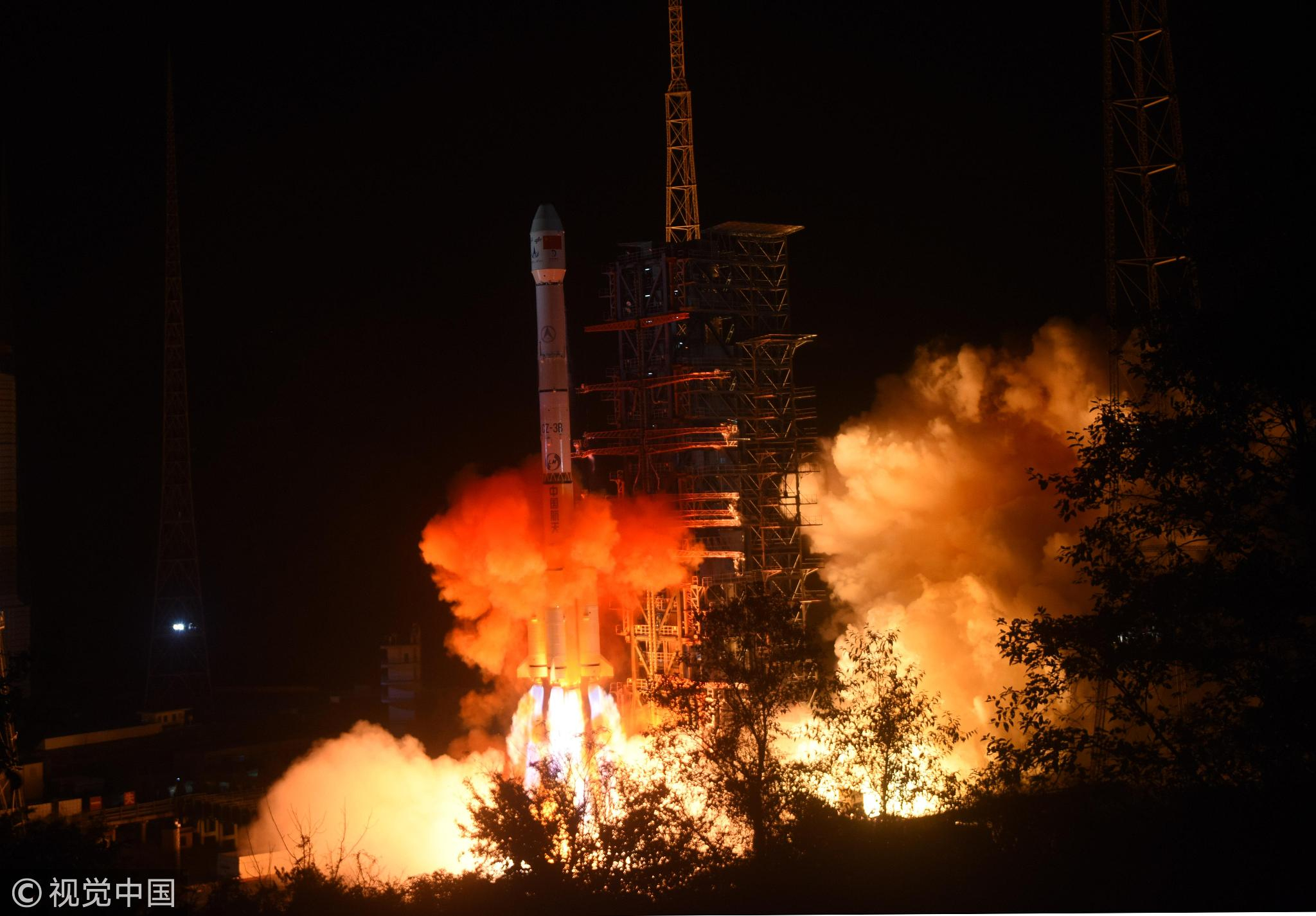
China successfully launched the Chang'e-4 Lunar Probe aboard a Long March 3B rocket on December 8, 2018. /VCG Photo
China successfully launched the Chang'e-4 Lunar Probe aboard a Long March 3B rocket on December 8, 2018. /VCG Photo
The CPC makes plans for the very long term. For example, it plans to make China become a "moderately well-off society" by 2021, and a fully developed nation by 2049.
To do this, the Party has dozens of specific long-range plans. For example, China intends to become the world's “premier global artificial intelligence innovation center” by 2030.
Washington has legitimate trade grievances with Beijing, and many of China's trade partners feel the same way.
Unfortunately for all sides, Trump has not taken a serious approach to solving these issues, but rather a reality TV approach. He could have gotten together with China's other trading partners and filed a WTO claim, for example, which might have ultimately borne fruit, rather than breaking off trade negotiations and opting for sanctions. The sanctions approach is easy for his voter base to understand, but in the end, it will only lead to negotiations anyways.
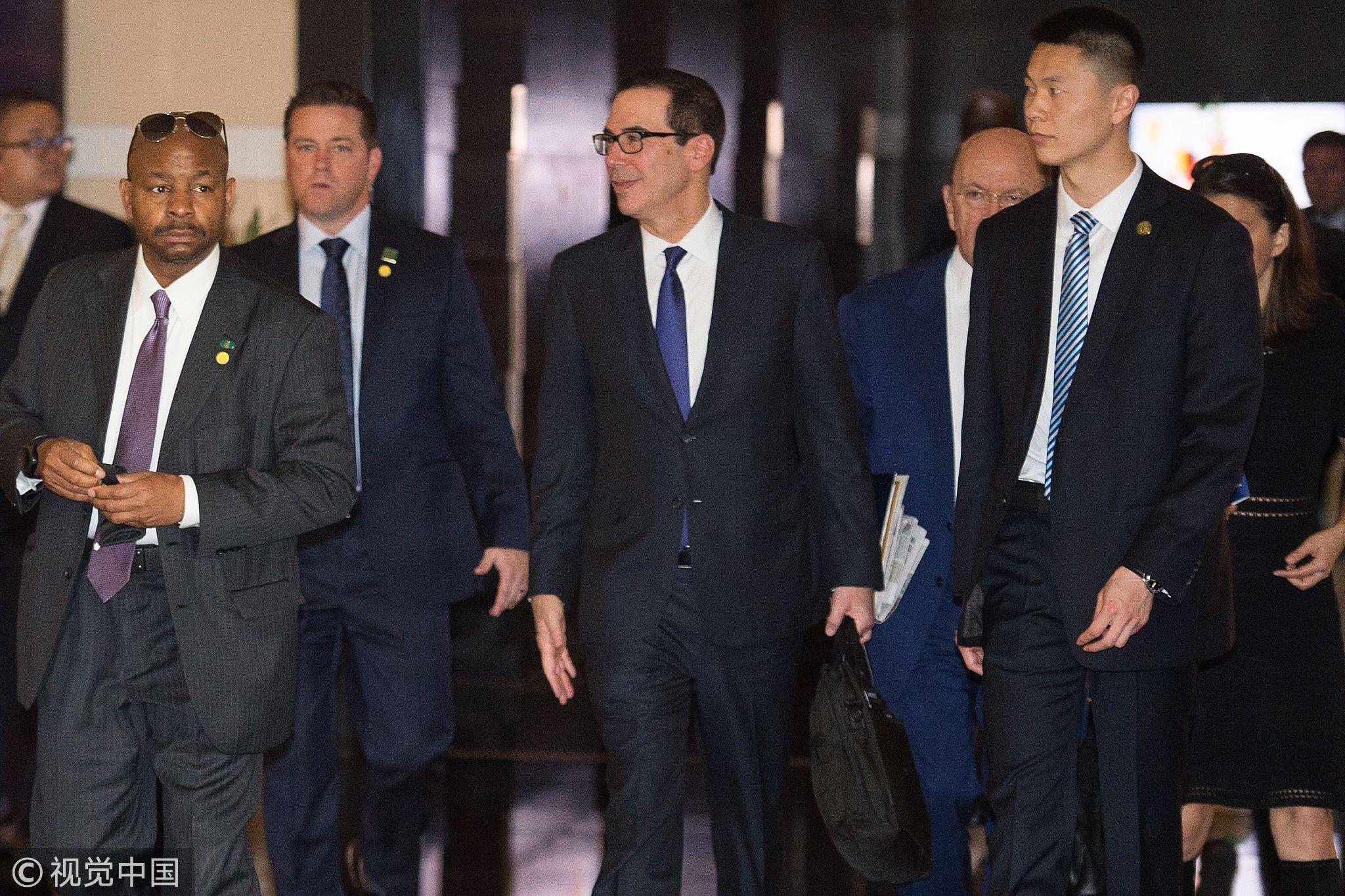
U.S. Treasury Secretary Steven Mnuchin (C) and U.S. Commerce Secretary Wilbur Ross (2nd R-partly hidden) walk through a hotel lobby as they head to the Diaoyutai State Guest House to meet Chinese officials in Beijing, May 4, 2018. /VCG Photo
U.S. Treasury Secretary Steven Mnuchin (C) and U.S. Commerce Secretary Wilbur Ross (2nd R-partly hidden) walk through a hotel lobby as they head to the Diaoyutai State Guest House to meet Chinese officials in Beijing, May 4, 2018. /VCG Photo
In the meantime, the sanctions, a classic lose-lose maneuver, aren't necessarily harming China any more than the U.S. Neither side needs to back down. While the impasse continues, opportunities to create wealth are needlessly slipping away.
Looking forward to 2019, as trust deteriorates between Beijing and Washington, red lines will likely continue to be crossed. The arrest of Chinese executive Meng Wanzhou may just be an escalating step in Washington's trade war with China, to be followed by more charges against Chinese nationals of espionage and violating various U.S. laws. Beijing may in response make similar arrests and erect non-tariff barriers to punish U.S. firms.
As trust erodes between Washington and Beijing, simmering problems could rapidly escalate into a dangerous situation. Miscalculations in the South China Sea could easily lead to a shooting war. Certain factions in China, represented in the leading Global Times newspaper, are hot to assert the nation's role on the world stage with a military victory. Trump's warlike impulses have thus far been restrained by the generals he has appointed to help him, but it is easy to imagine this check on his worst impulses being swept away as he continues to stack his administration with third-rate yes men with little to no relevant experience.
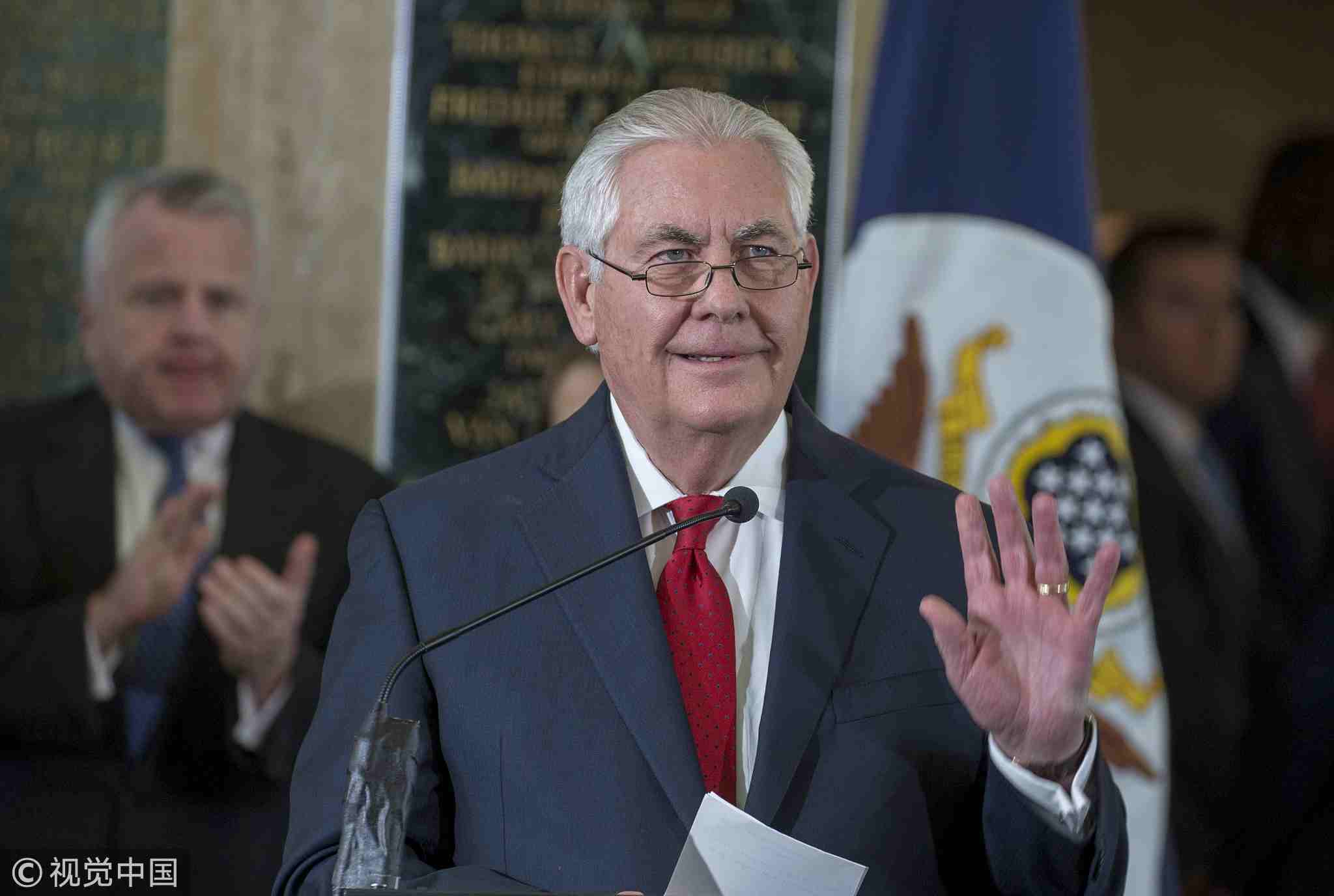
Former U.S. Secretary of State Rex Tillerson delivers his farewell address at the State Department in Washington, D.C, March 22, 2018. /VCG Photo
Former U.S. Secretary of State Rex Tillerson delivers his farewell address at the State Department in Washington, D.C, March 22, 2018. /VCG Photo
China, well aware of the risk of slipping into a lose-lose tit-for-tat cycle that spins out of control, has held its ground but remained restrained in its response to Trump's provocations and grandstanding on trade.
Presumably China's leadership, working on a much longer time-scale than the president's 24-hour news window, has decided the best approach is to run down the clock on his administration. After all, if China and the U.S. can eventually resolve their differences on trade, both sides stand to benefit greatly.
China is pledging to continue implementing reform and opening-up policy. If its leadership follows these pledges with action, there is a way out of the current impasse.
In the best case scenario for 2019, Trump's trade war with China will be abandoned, meeting the same fate as his denuclearization deal with Democratic People's Republic of Korea's leader Kim Jong Un or his vow to repeal Obamacare. The president will move on to some new topic to rally his base and stay in control of the news cycle.
(If you want to contribute and have specific expertise, please contact us at opinions@cgtn.com)

